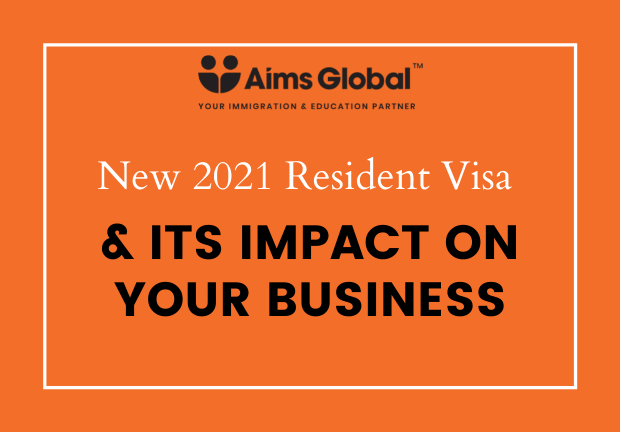Top Tips - How to Hire Migrants on an Essential Skills Work Visa
20 October 2021Consider this your timely reminder that from this point forward, there will be only one type of work visa that employers can use to hire migrant workers.
As part of the government's immigration rebalance, we are seeing all temporary work visas phased out to make room for new categories in this space. The Talent (Accredited Employer) Work Visa and the Long Term Skill Shortage List (LTSSL) Work Visas - both of which were residence pathway visas - can now no longer be leveraged. This change has left hiring managers with only one option until mid 2022 - the Essential Skills Work Visa.
The Essential Skills Work Visa is not a pathway to residence visa - this means there is no guarantee of NZ residency after a certain period of time. Of course there is still the one-off 2021 Resident Visa but this is a short lived option- closing 31 July 2022. Essential Skills will close around the same time as 2021RV applications close, thus the phase out of these employee-led visas will be complete.
Until then, with WTR pathways closing soon to new applicants, organisations will have to rely primarily on the Essential Skills Work Visa to hire migrant workers for the next nine months. And considering the state of NZ’s current labour market - with a record number of jobs and not enough applicants - employers will absolutely need to rely on migrant workers to fill the number of roles available.
Therefore, they will need to familiarise themselves with this visa. In order to do so, there are a few critical concepts that employers must learn. These concepts will greatly impact the success of ESWV applications - and the ability of employers to hire migrant workers:
What Is the Essential Skills Work Visa?
At a high level, the Essential Skills Work Visa (ESWV) is a temporary work visa that allows individuals to gain work rights to work:
- In a specific occupation
- For a specific employer
- In a specific location (city).
These three conditions of employment are tied into the visa, and the visa is restricted to them. An applicant cannot work outside of the three conditions and an employer mustn’t ask their employees to do so either.
But the success of an ESWV comes down to more than just those three factors:
- In order to get an ESWV, individuals must first have a job offer in hand. They must also have the necessary experience and qualifications to do that job.
- The employer they are looking to work for must also be compliant with NZ’s immigration and employment law. Review our article on employer compliance here.
- Unlike the LTSSL and Talent visas, where visa applicants had to be paid a minimum annual salary (Talent - $79,560 p.a., LTSSL - $45,000 p.a.), under the ESWV a worker can qualify for a work visa at any salary level as long as it is in line with market pay for that role. However, the duration of the visa depends on their hourly rate. If they are paid at or above $27 (current NZ median wage), they will get a three-year visa. If paid under $27/hour, then they will qualify for a two-year visa instead.
- Also unlike the LTSSL and Talent visas - where the success of the visa application is determined by mostly objective requirements, some core elements of the ESWV application can be assessed more subjectively. A typical example of this would be the labour market test (advertising process). Whether an employer has made a genuine attempt to recruit NZers for the role first depends on the case the employer makes - which includes scrutinising the advertisement.
- Employers hoping to hire a candidate under an ESWV must demonstrate that necessary steps were taken at their end, and if required, even justify the decisions made during the hiring process.
- Often questioned in Essential Skills Work Visa is also the genuineness of the role (or why is it needed), especially if it was newly created. Remember, it’s not just about you providing an explanation, the immigration officer must see eye to eye with it as well.
- Good character and clear medical histories are also very important for ESWV approval. Often employees do not share any issues in this space with their employers. So even if the employer does everything right from their end, but the employee has a character issue, the application could get declined and the end result (approval) will not be achieved.
Ensure You Understand the ESWV Category
We encourage employers to become familiar with this category. This visa has a bit of a learning curve - so it is especially important that those who have not supported many Essential Skills before set aside the time to learn. Especially for Accredited Employers who would usually use talent visas to hire new staff - this will be a totally new process for them.
And as much as we would like to say that things will settle down for employers once they get the hang of the ESWV process, that is unfortunately not the case. After all, the new Accredited Employer Work Visa and the Mandatory Employer Accreditation System will go into effect 4 July 2022. It might even be fair to say that this is the calm before the storm for employers, at least from an immigration standpoint.



.jpg)
